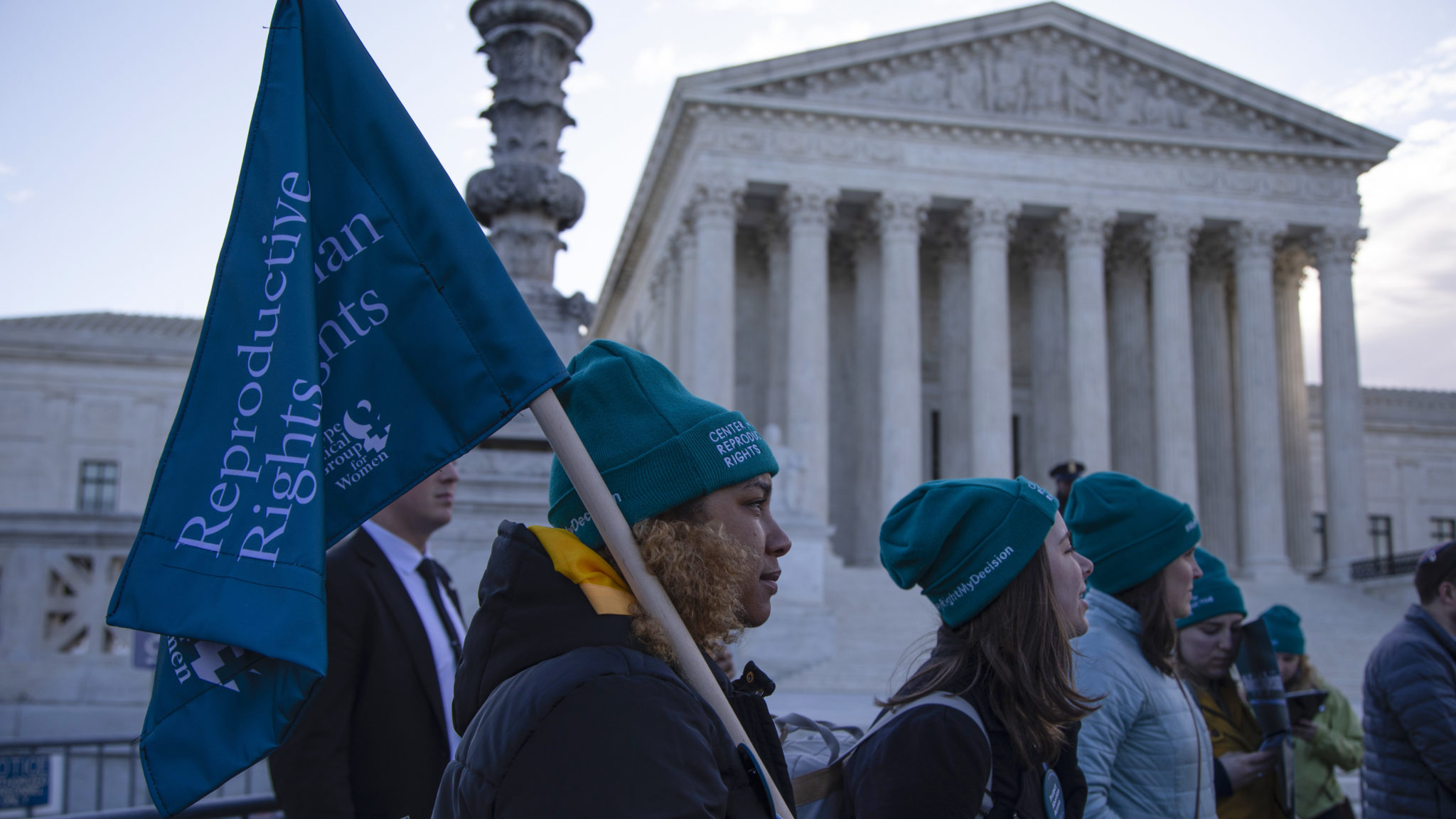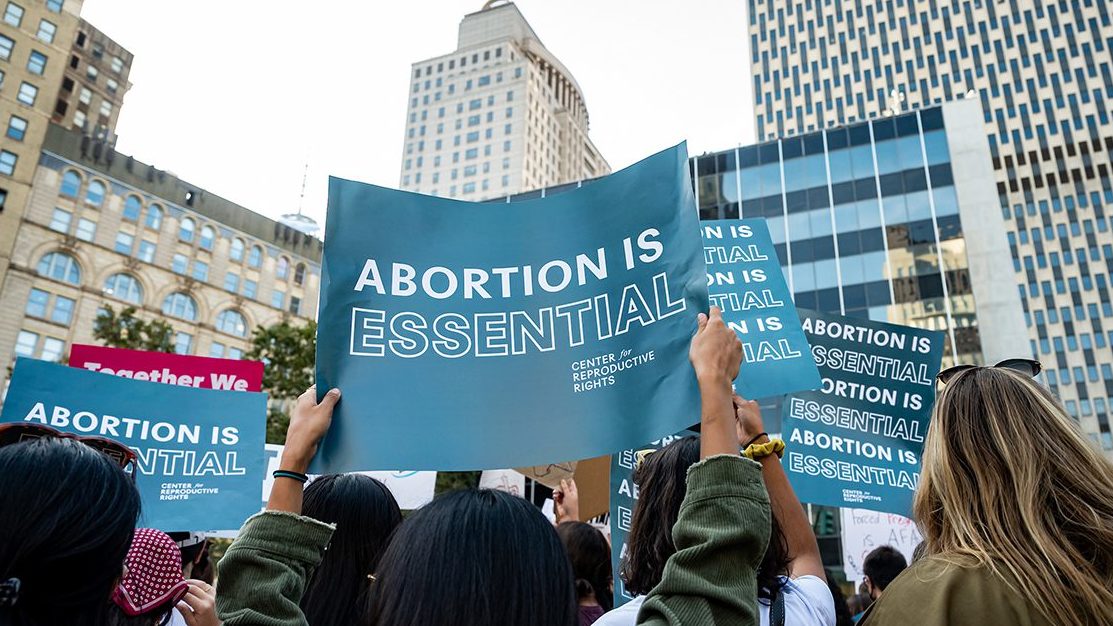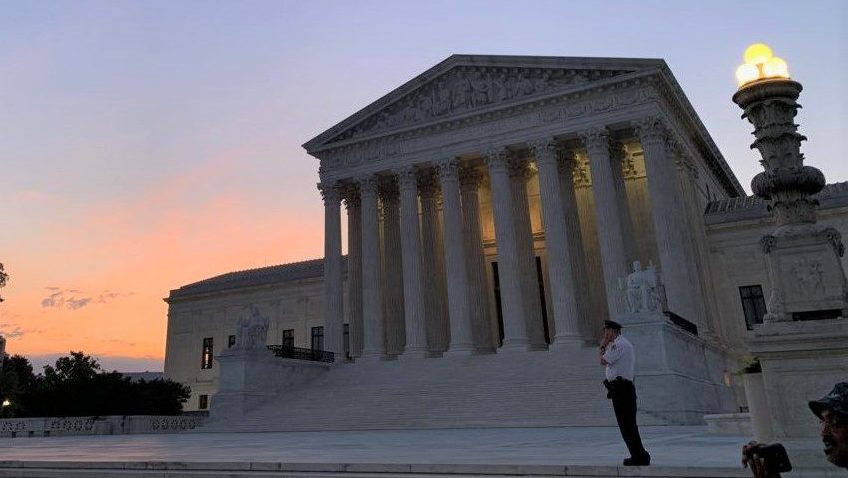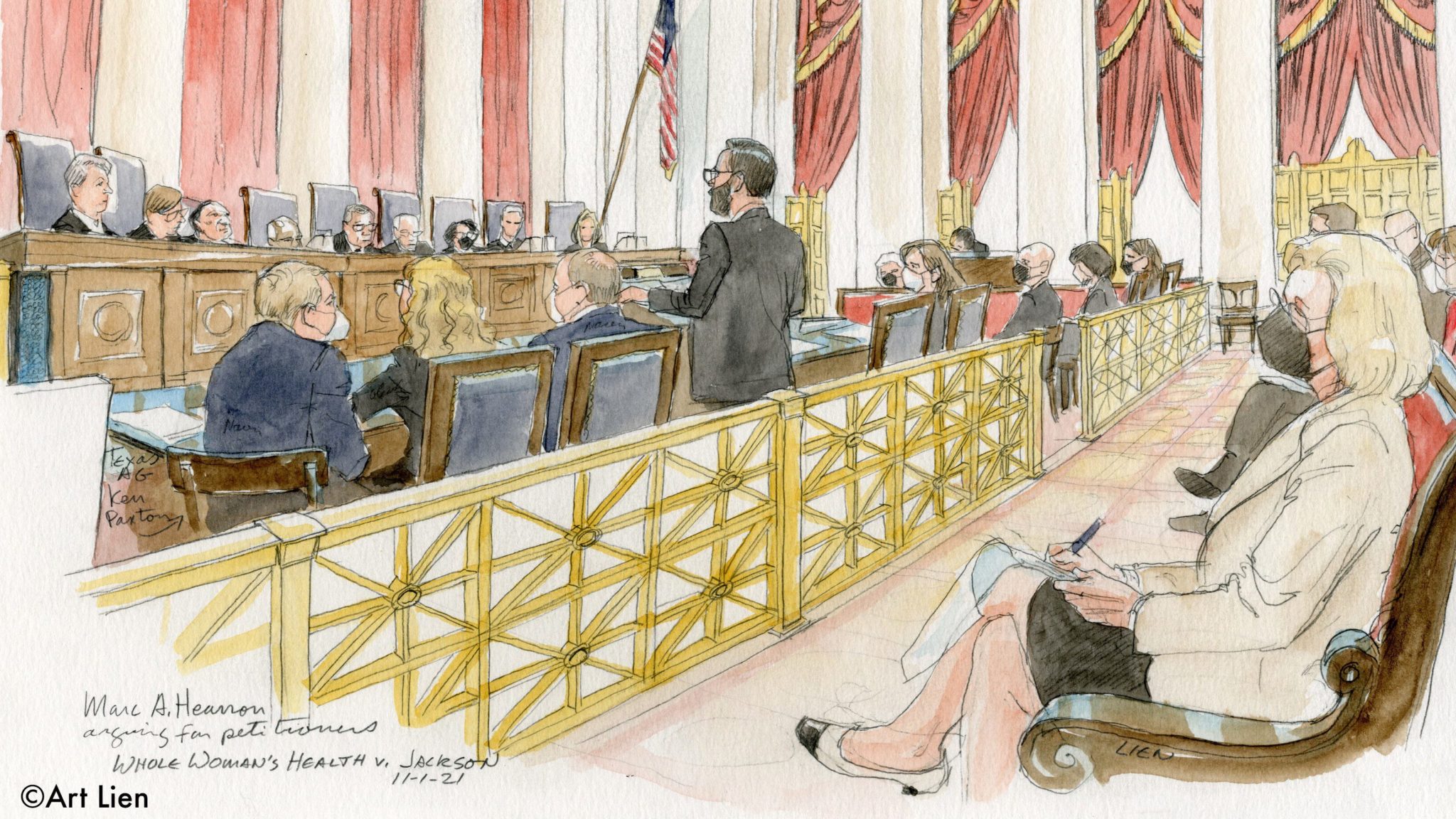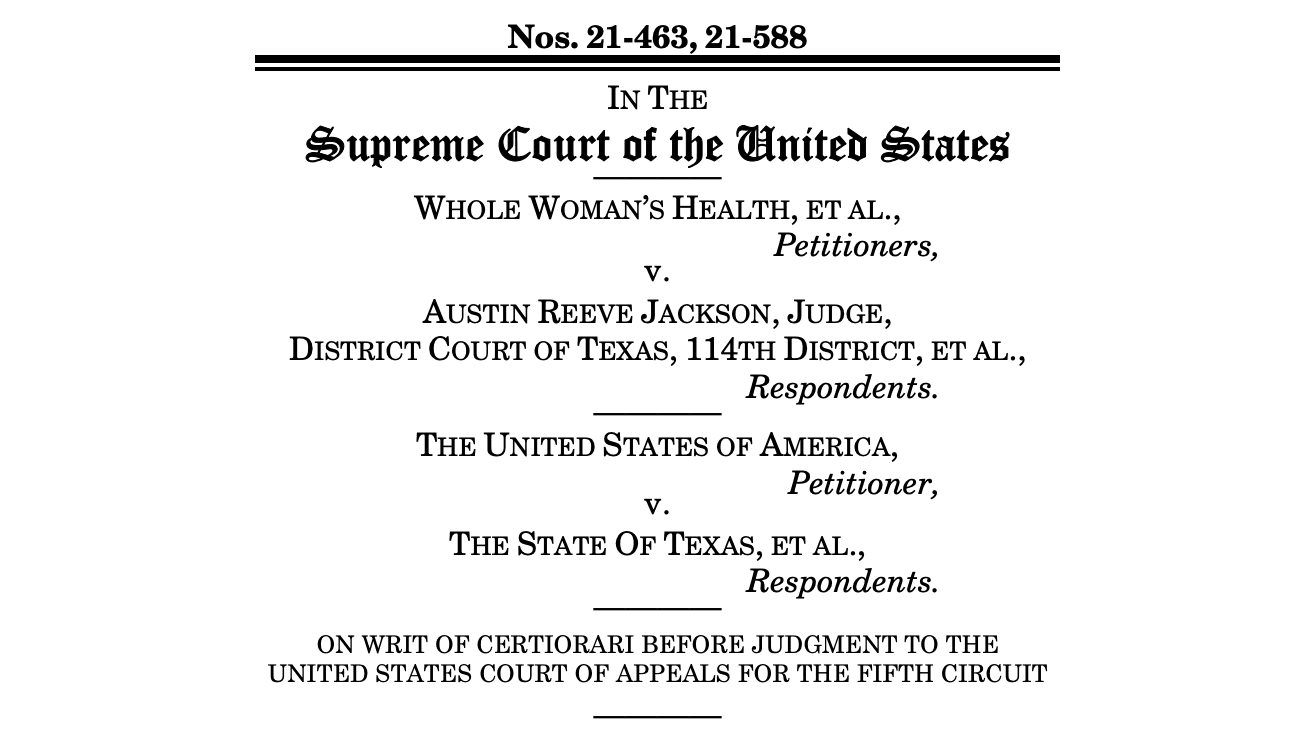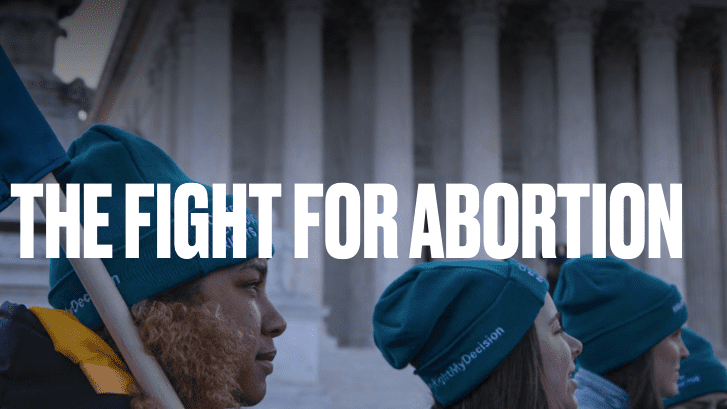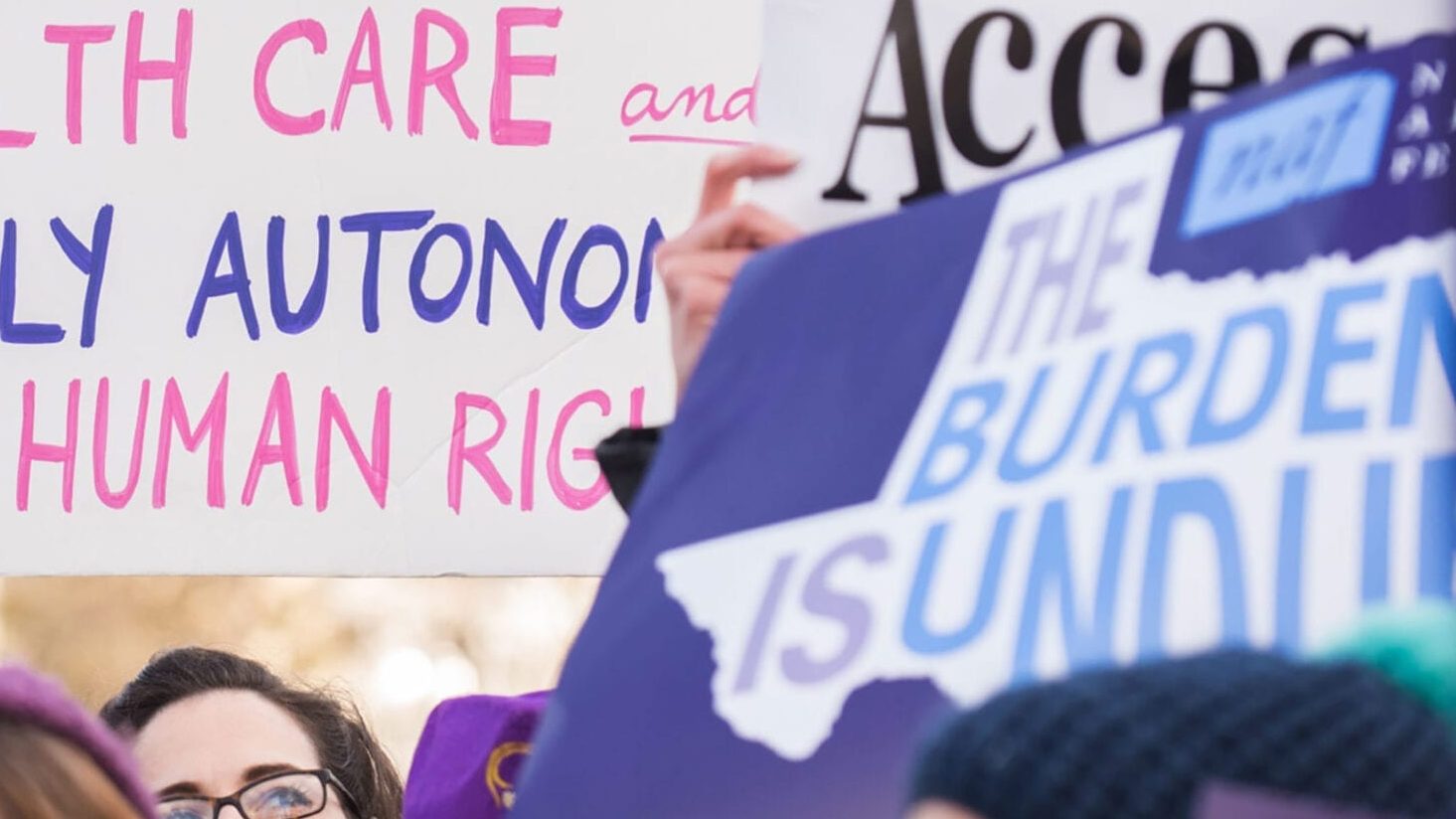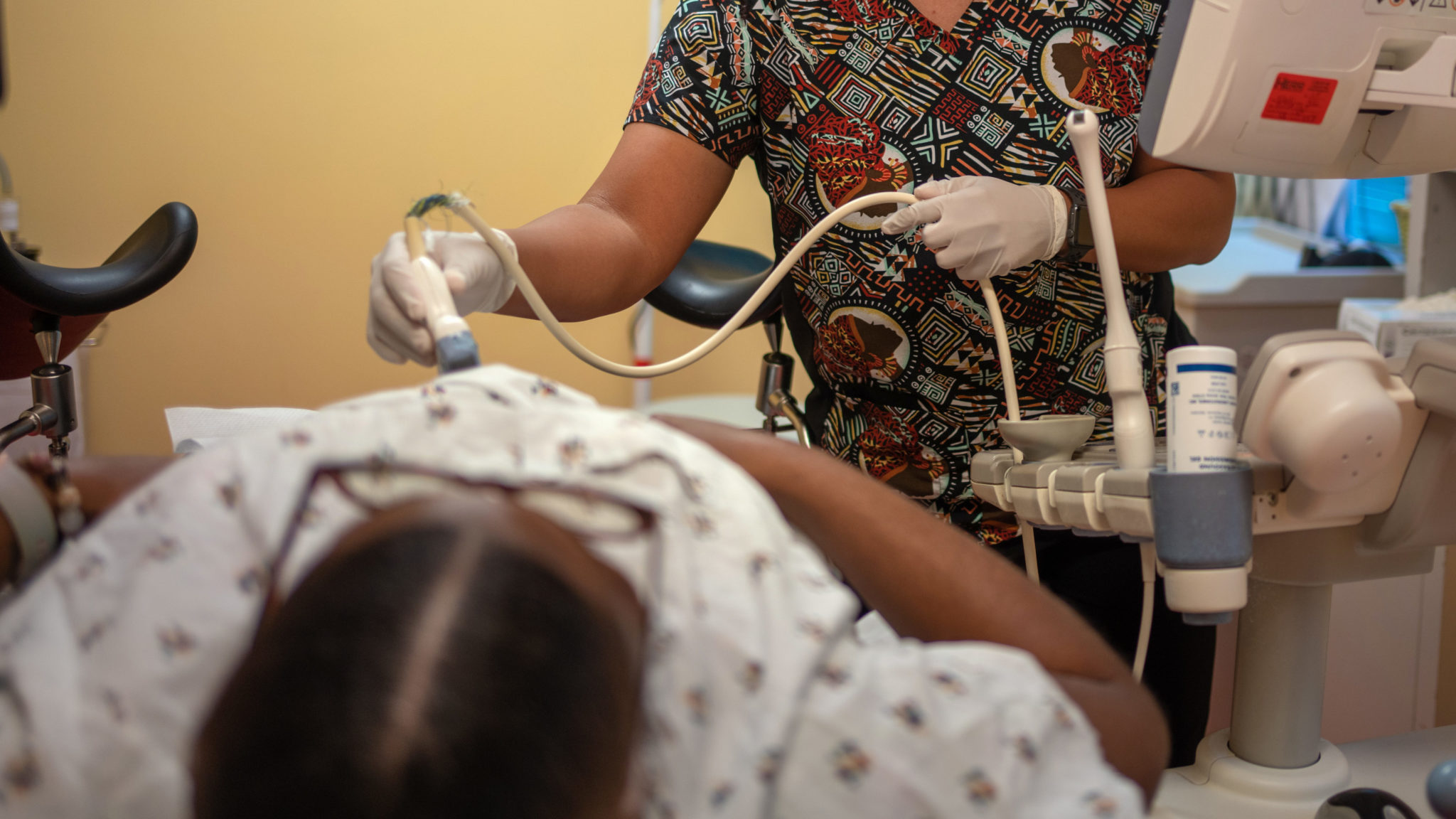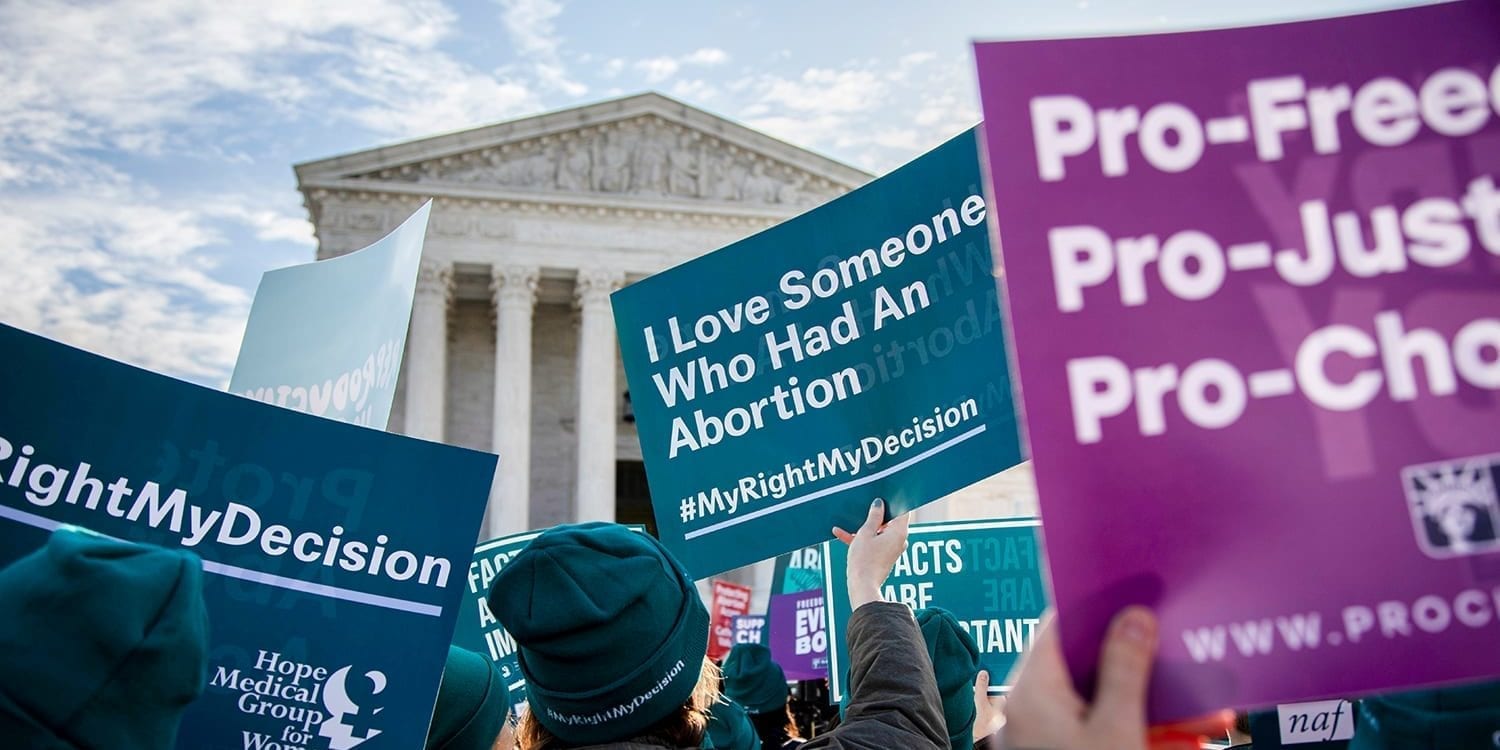U.S. Supreme Court Case
Texas Abortion Ban Case at the U.S. Supreme Court
Whole Woman's Health v. Jackson challenged Texas's unconstitutional abortion ban and vigilante scheme. The U.S. Supreme Court refused to block the law, leaving federal courts "powerless" to defend constitutional rights.
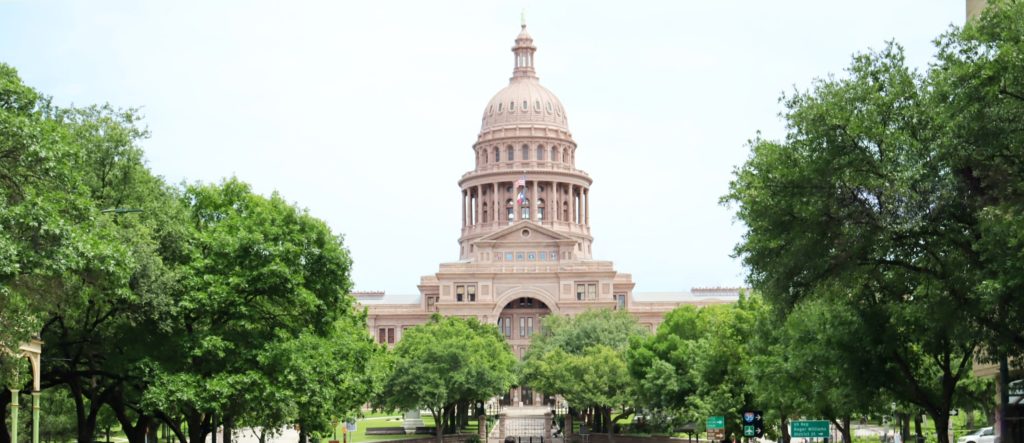
On December 10, 2021, the U.S. Supreme Court issued its ruling in this case, refusing to block Texas’s unconstitutional abortion ban and vigilante scheme that has denied Texans their constitutional right to abortion and ended most abortion access in the state.
“The Supreme Court has ruled that federal courts are powerless to protect constitutional rights in the face of a devious state scheme that hands over state enforcement power to private citizens,” says Marc Hearron, Senior Counsel of the Center for Reproductive Rights, who argued the case. “The Court has effectively endorsed Texas’s efforts to subvert the U.S. Constitution.”
In a 5-4 decision, the Court dismissed the most significant part of the Center’s case, ruling that the providers could not bring suit against the classes of state judges and clerks or the state Attorney General.
The Court allowed only a narrow portion of the case to proceed in federal court against the Texas Medical Board and other licensing authorities, but in March 2022, the Texas Supreme Court ruled that the case could not proceed against the Texas Medical Board and other similar state licensing officials, who were the only remaining defendants in the challenge. The ruling effectively ends the federal court challenge to the state’s ban, which has ended most abortion access in Texas since September 1, 2021. Read more details on the case here.
The Center for Reproductive Rights and its partners brought the case to challenge Texas’s S.B. 8, which bans abortion after approximately six weeks of pregnancy, before many know they’re pregnant. The law, S.B. 8, also incentivizes individuals—including anti-abortion activists—to bring costly and harassing lawsuits against anyone who provides abortion care or assists someone in obtaining an abortion in violation of the ban. The Texas law took effect September 1, 2021.
